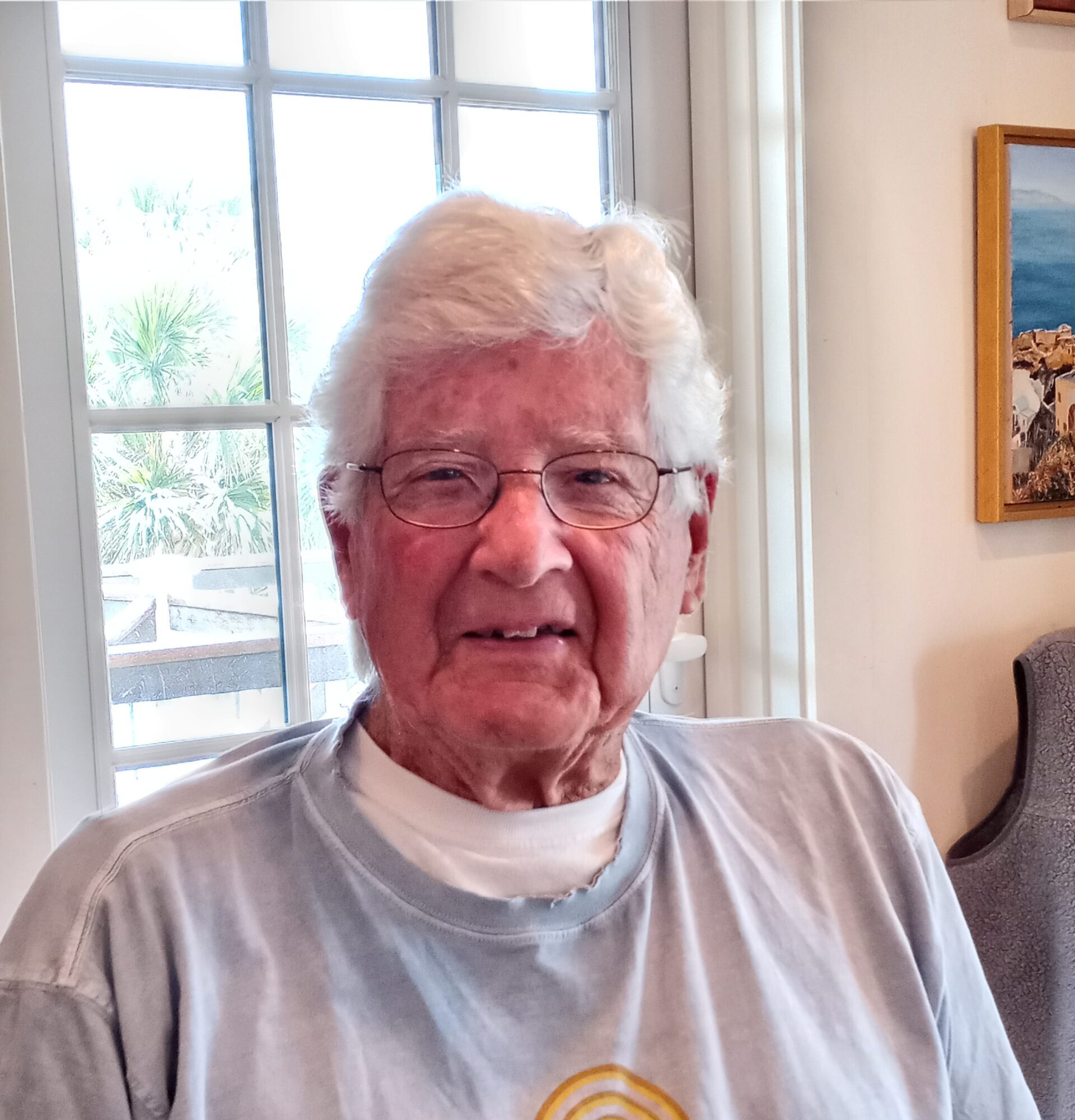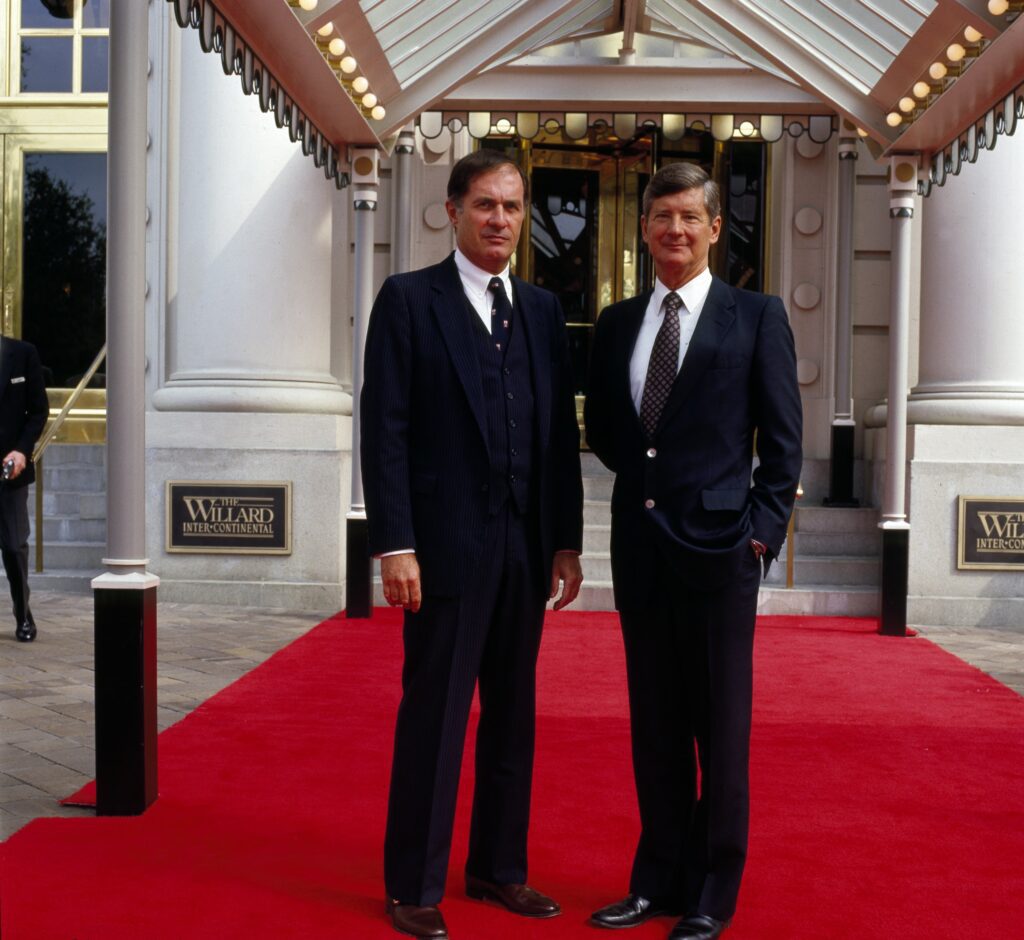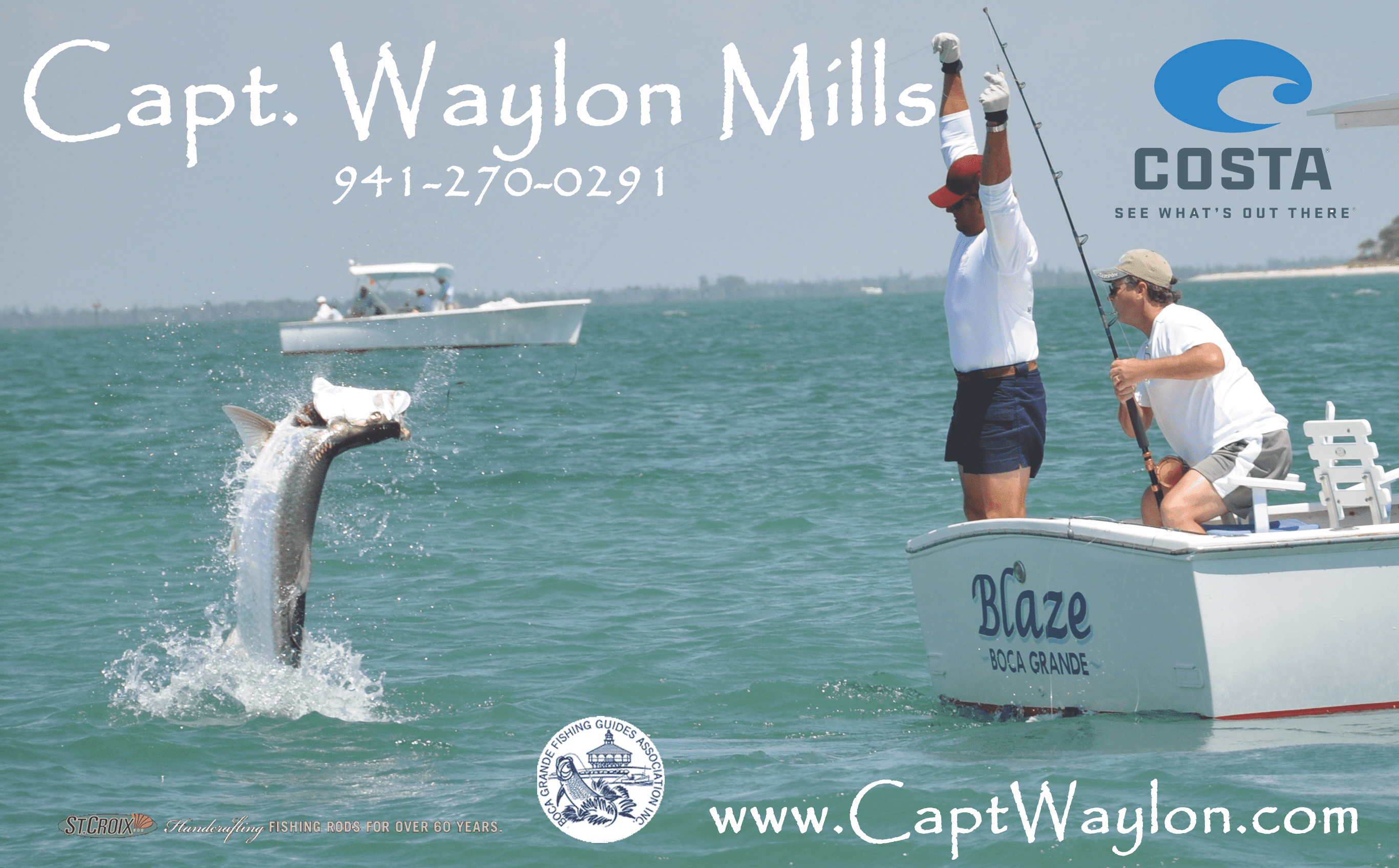IN THE SPOTLIGHT: Urbanist & rebuilder of the Nation’s Capital

Boca Grande is very close to being a perfect community. That’s the personal and professional opinion of Oliver T. Carr, who has owned a home in Boca Grande for 20 years, and has been developing homes, office buildings, hotels and communities for longer and more successfully than just about anyone on the planet.
Ollie, as he is known worldwide, values people, and has dedicated his life to helping them live together in places that enhance their lives. At 99 years old he is about to launch a new facet of his company, aimed at helping build communities that foster good schools, good work places, good governance and good friendships. His vision is modern communities with old fashioned values.
“It’s not complicated,” he insists. He believes Boca Grande is a good model. People know one another. They greet each other on the street. They have parties and parades and celebrate their children’s successes. They have a good school, great churches and stimulating community programs. They give back, both financially and personally, to the community and to good causes.
Ollie believes he can replicate the Boca Grande feeling in other places that have lost some of those old fashioned values. He has been a builder and a developer for decades. He wants to put his knowledge and skill to work building a better future for today’s and tomorrow’s young people.
His company, Carr Companies, headquartered in Washington, D.C., states: “We are advocates for green spaces, safe streets, great schools and any other element that improves quality of life and bolsters civic pride. We approach each place as a ‘Center’ in its community, where a complementary layering of homes, hotels and workplaces are brought to life through events and services to create a whole greater than the sum of its parts. A place where people can come together. A place where people can thrive.”
He knows he can make this ideal into reality. He has his own life story as inspiration and as a kind of roadmap. He, personally, overcame what could have been a disastrous childhood because he lived in the kind of community he knows he can replicate.
His story starts in a doctor’s office, when Ollie was only five years old. He and his father were visiting the doctor, who had serious news to share. The doctor had little Ollie sit on his lap while he informed him, “You’re going to become blind. You can’t play football, you can’t play baseball, you can’t play any kind of contact sports. You cannot climb trees. You cannot do anything that might take the other half of your vision away. Because gradually, you are going to lose your sight.”
Ollie did not respond, and he and his father returned home in silence. But when Ollie thought about it, he said to himself, “To hell with you. I’m going to do everything.”
And he did.
“My friends and I played in the woods, climbed trees, played baseball, played football. I did everything possible – absolutely ignoring it,” he said. Oliver believes this was a turning point in his life: “I think there is somewhat of a hard-headed essence there that’s maybe affected my whole life.”
But eventually losing sight in his left eye and living with the possibility of losing his sight completely, was compounded.
“My grandfather was English, an English-immigrant. The family, my relatives, all came from England. My parents split, divorced, and so my father basically deposited me on my grandparents’ doorstep. And so, the first 10 or 15 years of my life were lived in the house of an English immigrant, and I think that affected me, too.”
Ollie spent a great deal of time with his uncle, who also lived in the house.
“I was a little kid, who’d been deposited there. Most every night, my father was gone. Nobody was there with me except my grandparents, and then my grandfather died. So every night I would go upstairs into the studio, which was a part of that house, and I would sit on the stool and watch my uncle paint. And we would talk. He was very kind, very patient, and as I watched and listened I think it really affected my appreciation for a whole variety of things. That was sort of the introductory relationship with things of that kind.”
His father remarried, and Ollie’s relationship with his stepmother was not good.
“But my foundation was in this community, where this house was planted – a distinct neighborhood in which several of the homes were occupied by relatives of mine.
So that was a very clearly defined community, and included some people from American University. The athletic director lived there with his kids, and the students would come to the house from AU, the jocks, and we loved interacting with those young people. And so those years of skating, sleighriding, you name it, and this is on the edge of Washington, still in D.C., but it was like the end of the world. So it was woods, river, reservoir–which froze over for skating in the winter. It was an idillic 10 years for a kid. And I really think that affected me tremendously.”
He said the public schools were “top quality.” And walking to and fron school, even as a small child, helped instill independence and self-confidence.
“I think that had an important effect on me and all the other kids. You were very independent that way,” he said. “During the years from 0 to getting out of high school, it was a great life. Washington was a small town then. Very unsophisticated. And it was a very interesting part of my youth, to be exposed to this really very Southern experience for a little kid.”
His father and uncle had started a company, around 1930, called OT&WA Carr Builders. They built homes “all over the place,” he recalled. “My first job – I think I was 11 or 12. I had a razor blade and I used to clean the paint off the windows after the painters. I always had a job. They used to have the Good Humor Truck, and any of the kids old enough could put a sling over your shoulder and a freezer box at the end of it, and at lunch time you’d go round to these construction jobs and sell the guys whatever it was. I used to deliver papers. As I got to high school I worked at all sorts of jobs. I worked in a drug store, with buddies, as a fountain jerk. I always worked.”
The bottom line was: Great schools, great communities, great interaction with people. It was “familial,” he said. “The whole thing felt like a big family in your neighborhood.” That is what he plans to bring back.
In case anyone doubts Ollie can accomplish what he sets out to do, regardless of his age, they should think again. He is a force to be reckoned with when it comes to building, planning and making a vision come to fruition. A glance at the Carr Companies webpage shows the magnificent buildings he has built and managed. He has taught urban planning to scores of young planners at Harvard and other prestigious schools. He has advised presidents and housing authority chiefs about better ways to solve urban housing issues. He is known as the “undisputed leader in Washington’s booming downtown development market,” according to an article in The Washington Post from some years ago.
People who know him, know he is a practical visionary. He knows how to make buildings work for people. And he knows how to put the pieces together to make communities work for them, as well.
The new company will draw from history, with ideals and activities aimed at replicating some of those used by the “Grange.” That organization is focused on building communities, focusing on agricultural communities and their issues. Ollie’s version shifts those same ideals and issues to the urban centers. The ideals include “providing opportunities for individuals and families to develop to their highest potential in order to build stronger communities and states, as well as a stronger nation. (Grange’s 2006 mission statement)” and “strengthening individuals, families, and communities through service, education, nonpartisan grassroots advocacy (from its 2024 mission statement).”
Stay tuned for the details to be rolled out in the next month.

Photo Carol M. Highsmith Archive,
Library of Congress
As that is happening, Ollie and Kathy, his wife of some 45 years, will be busy on this and other fronts. They are returning to Bethesda, Maryland, where their principal home is. He will continue to oversee all the other businesses under the Carr Company’s umbrella (there are six of them, soon to be seven), find time to exercise at least an hour a day, interact with family and friends, and spend time in Maine, where their summer home is.
There are some other things about Ollie Carr that show the kind of man he is.
He was 18 when the U.S. became involved in World War II. Like all of his friends, he was eager to sign up. Even with his sight issue, he was able to join the Army, and was assigned to “limited duty,” which only meant he was not sent to the front lines.
“I could triangulate and fire a rifle, and do all that stuff, but they wouldn’t let me get into the infantry or the air force,” he said. “But I was in the service part of the Army. So all my classmates went into the military. The war had been going on for a couple of years. I was in a fraternity, a jock fraternity, and everybody went in.”
As he spoke, he was overcome by emotion, noting that he never speaks about this time, when some of his good friends never returned from battle. Recovering his composure, he went on: “I was assigned to Camp Lee, in Virginia (at Petersburg) and I did basic training, the 90-day wonder type. And then we were shipped overseas. I was on the HMS Aquitania, a british troop ship…and a miracle happened.”
This was a huge ship, and from the top deck he heard someone calling him by his school nickname, “Otcs.” These are his initials, and the boys used them as his name. He could not believe that from the 8,000 troops on that ship, these friends saw him and they were all able to reconnect in the middle of the Atlantic Ocean, on their way to Scotland. He said it was two or three of his “very best friends,” and they were with the Engineers. They had no idea they would ever see one another again.
From Scotland, Otcs, or Ollie, was sent to Iceland, where he was stationed for serveral months, and then shipped off to Iceland. The mission there was to keep the German forces from setting up a submarine base there. He did a lot of loading and unloading ships. He was sent to England next, assisting the 101st Airborn at Newberry, preparing for D-Day. Then, as the invasion started, he was sent to France, and then, with the occupation of Germany, he became part of the occupation forces. In all, he was overseas, in the military, for 2-1/2 years.
At the end of the war there were not enough ships to carry all the troops home immediately, so he and some friends checked out the south of France for a while. GIs were able to volunteer to attend college in Europe, so Ollie took advantage of that and enrolled for a few classes at Shrivendam, in England.
When he finally returned home he went to work, but also went to school on the GI Bill. Over the next few years he attended the University of Maryland, American University and George Washington University, for undergraduate and graduate degrees. He married (his first wife) and started his family. For a while he was a “crabber,” catching crabs commercially with a buddy.
“After doing that and going to school for four or five years, I took one course by the person who became the president or chancellor of the University of Hartford. He taught a course in Urban Studies–Lewis Mumford, a great writer about cities. So, because I had this builder background, I became interested in cities and how they function. This was a wonderfully deep, rich kind of collection of books, and I ended up teaching it at the univesity, teaching Urban Studies, and at that time I was starting to build the company, and do other things, like physically building hotels and workplaces and homes, as my other family members had done. But the war was over, my uncle passed away, my father left the business, so it was up to me to start again–which I did.”
“As the years went by, we built a pretty good sized company. It was a national company, called CarrAmerica, that was a pure office company. We also kept a little hotel company on the side,” he said.
At one point, Ollie used to commute by bus from his home to his office, in the Mills Building, which was centrally located near the White House.

Photo Library of Congress, Carol M. Highsmith Archive, 1986.
“I would get off the bus and walk down 17th St., toward Pennsylvania Avenue. And guess who I frequesntly walked with? Harry Truman! The President used to take his constitutional every morning. He took a walk with a couple of Secret Sercive guys, and so we’d greet each other, and if the light would turn red we would stop together and chat on the curb just briefly. He was very peppy, energetic. When you think of the security the President has now, it is amazing to think someone could have done that.”
That would have been in 1950, since there was an attempt to assasinate the President that year, and Ollie was a witness to that attempt. He saw the whole thing from his office window, across the street. After that, the carefree chats on the street were no longer allowed.
Then, in the 1960s, racial issues boiled over and in 1968 riots were happening in many cities, including Washington, D.C. Businesses moved out of the cities and into the suburbs, and had no plans to move back. The big exception to this was the Carr Companies. They saw opportunity in the empty buildings. That is when Ollie’s Urban Studies education and his innate planning genius became the engines of success. He redeveloped the D.C. area and his success paved the way for a revitalization of that town and many other areas of the country.
There are more stories to tell and more details to share, but those are for another day. Oliver T. Carr has beaten the odds since he was a little child. He is continuing to do so as he works through his 100th year on earth. While he prefers buildings not to be too tall, the sky’s the limit for this man.
Ideas for Gasparilla Island from urbanist Oliver T. Carr
Editor’s Note: In our Spotlight Carr shared some thoughts about the future of Gasparilla Island. They included the speed limit, housing, and additional uses that might make Whidden’s even more of an asset.
Boca Grande is “perfect; it’s almost too perfect,” claims Oliver T. Carr, world-renowned developer and urban planning guru. Still, there are three things he would like to see changed in this special place he calls home much of the year.
– Having a uniform speed limit along Gasparilla Road, and banning passing along that road. He would choose 35 m.p.h.
With “young families crossing that road regularly, and older residents hoping they can get across before they are struck down,” Ollie believes something should be done. He has seen serious accidents happen that could easily have been prevented with more control of the road traffic.
– Providing living opportunities on the island for people who work on the island, so the population and economy are both more diversified.
“I think that Boca, which is a place where the very affluent live, mostly, and less affluent people cannot find a place to live here. There are things called ‘Granny flats,’ and there are flats over shops and stores. There are lots of places you could tuck a little, less expensive unit in. I think, demographically, it would be a healthier place if some of the people who work here could also live here. I’m not suggesting you overwhelm it, I suggest you try for a better balance so that somebody who may be working at one of the restaurants or shops, could also live in a flat here.
– Starting a rowing club in Boca Grande and using Whidden’s Marina as its headquarters, which could, in turn, assist in making the marina area even more inviting.
“My wife is a former Olympic-type rower, and I’ve rowed a little bit. So one little activity we might think about for Boca, which may sound odd, but there are rowing clubs in other parts of Florida, and I’m thinking of that little back water by Whidden’s, so some people might like a “Boca Rowing Club,” like others’ clubs for tennis, golf and other activities. Funds could be generated to set up an entertainment spot at Whidden’s at the same time.









